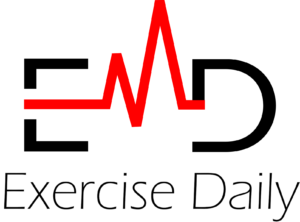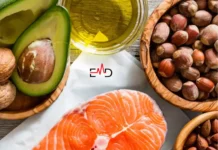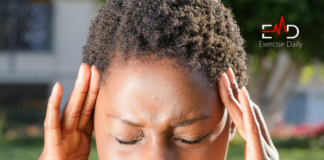Exercise Daily – In the realm of sports and athletics, achieving peak performance is the ultimate goal for athletes. Nutrition plays a critical role in enhancing athletic performance, and female athletes, in particular, need to pay close attention to their dietary choices. One approach gaining popularity among nutritionists and sports experts is the concept of low-energy-dense (LED) foods. This article explores the benefits of LED foods for female athletes and how incorporating them into their diets can positively impact their overall performance.
As more and more women embrace sports and athletic pursuits, understanding the importance of nutrition for female athletes becomes paramount. Female athletes have unique nutritional needs compared to their male counterparts due to physiological and hormonal differences. Proper nutrition not only enhances performance but also supports overall health and well-being.
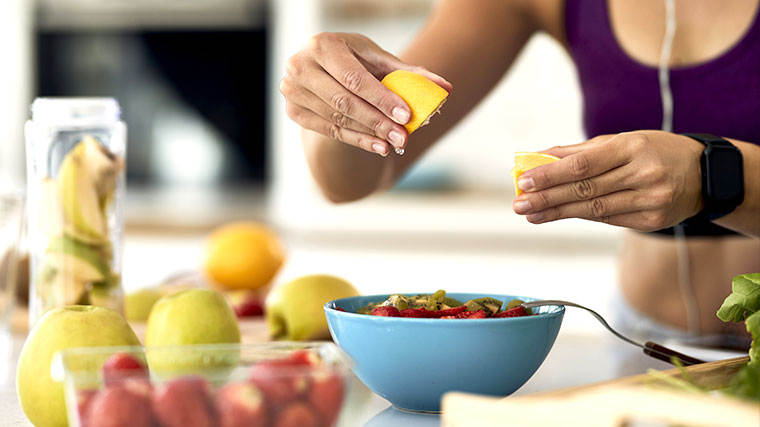
Low-Energy-Dense (LED) Foods
Low-energy-dense (LED) foods are those that provide fewer calories per gram of weight. These foods are often rich in essential nutrients, including vitamins, minerals, and antioxidants. LED foods are generally high in fiber and water content, contributing to a feeling of fullness and satisfaction without excess calorie intake.
Low-Energy-Dense (LED) Foods refer to foods that have a low number of calories per unit of weight or volume. These foods are typically high in water and fiber content, which makes them filling and satisfying despite being relatively low in calories. Including LED foods in your diet can be beneficial for weight management and overall health because they help you feel full without consuming excessive calories.
Examples of Low-Energy-Dense Foods include:
- Fruits and Vegetables: Fresh or lightly cooked fruits and vegetables are excellent examples of LED foods. They are rich in vitamins, minerals, and fiber while being low in calories.
- Leafy Greens: Foods like lettuce, spinach, kale, and other leafy greens have high water content and are low in calories.
- Whole Grains: Foods like brown rice, quinoa, oats, and whole wheat products are more filling and have more nutrients compared to refined grains.
- Legumes: Beans, lentils, chickpeas, and other legumes are a good source of protein and fiber while being relatively low in calories.
- Lean Proteins: Skinless poultry, fish, tofu, and lean cuts of meat provide essential nutrients without adding excessive calories.
- Soups and Stews: Broth-based soups and stews with lots of vegetables can be filling and lower in calories.
- Filling Vegetables: Certain vegetables like cauliflower, zucchini, and eggplant can be used as substitutes for higher-calorie ingredients in recipes.
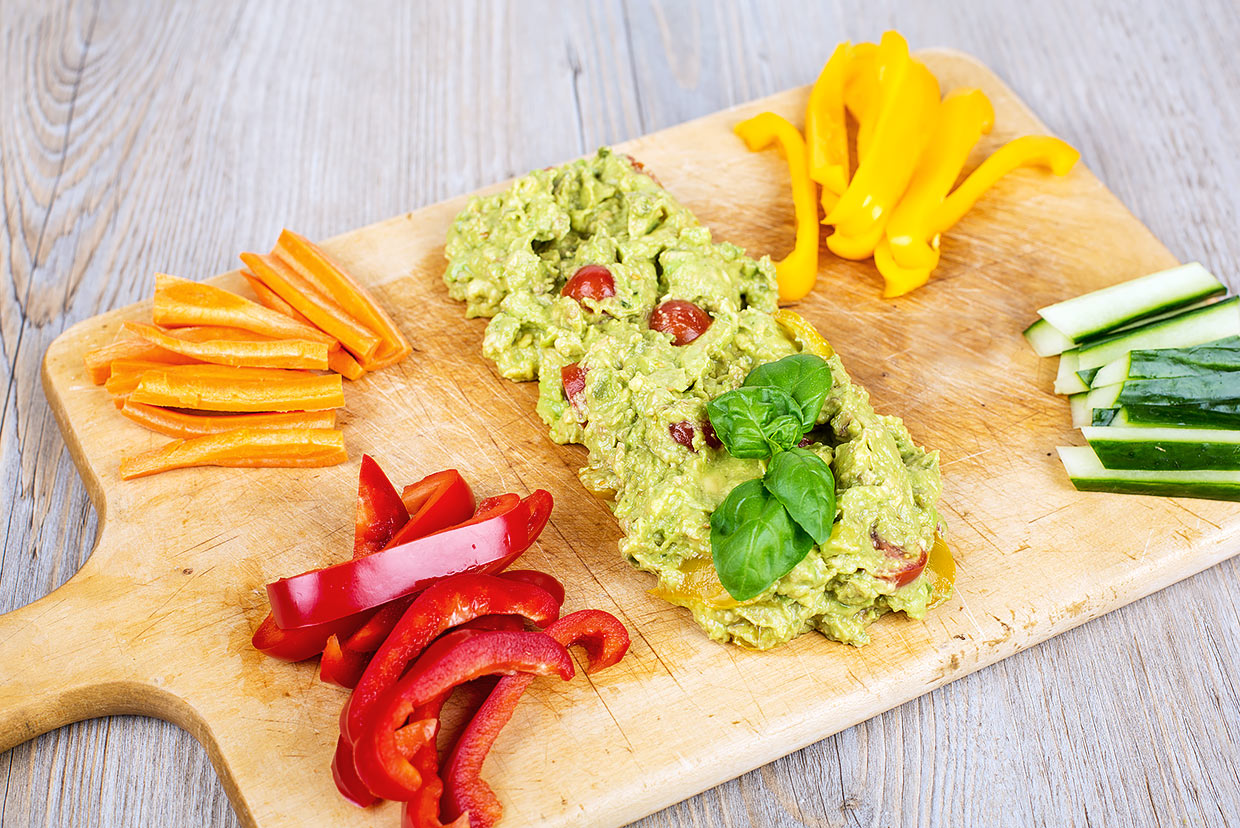
The Importance of Nutrition for Female Athletes
Proper nutrition is fundamental for female athletes to meet the demands of their training and competitions. Women engaged in sports require a balanced diet to maintain energy levels, support muscle recovery, and optimize overall health. LED foods offer an effective way to meet these nutritional needs while managing weight and promoting performance.
1. Balancing Macronutrients for Optimal Performance
- Carbohydrates: The primary source of energy for athletes. Opt for complex carbohydrates such as whole grains, fruits, and vegetables to sustain energy levels during workouts.
- Proteins: Essential for muscle repair and growth. Lean meats, fish, eggs, dairy, and plant-based proteins should be incorporated into the diet.
- Fats: Provide long-lasting energy and support hormone production. Choose healthy fats from sources like avocados, nuts, and olive oil.
2. The Role of Micronutrients in Female Athletes’ Diets
Micronutrients play a crucial role in overall health and performance. Iron, calcium, vitamin D, and B vitamins are of particular importance for female athletes. These nutrients support bone health, oxygen transport, and energy metabolism.
3. Hydration for Peak Performance
Staying hydrated is vital for female athletes, as even mild dehydration can negatively impact performance. Proper hydration aids in temperature regulation, nutrient transport, and joint lubrication. Athletes should drink water regularly throughout the day and pay special attention to fluid intake during workouts.

4. Addressing Menstrual Cycle and Nutrition
The menstrual cycle can affect an athlete’s nutritional needs and performance. During the luteal phase, some women may experience increased cravings and require additional nutrients. Proper nutrition during this time is essential for maintaining energy levels and supporting mood.
5. Common Nutritional Challenges for Female Athletes
- Disordered Eating: The pressure to maintain a certain body weight or shape can lead to disordered eating patterns, which negatively impact athletic performance and overall health.
- Low Energy Availability: When athletes do not consume enough calories to meet the demands of training, it can lead to low energy availability, which may affect bone health and hormone production.
6. Pre-Workout Nutrition Strategies
Fueling the body before a workout is crucial for optimal performance. A balanced meal containing carbohydrates, proteins, and fats about 1-3 hours before exercise provides the necessary energy and sustenance.
7. Post-Workout Nutrition and Recovery
After intense physical activity, the body needs to recover and repair. Consuming a combination of carbohydrates and proteins within 30-60 minutes post-workout aids in muscle recovery and replenishes glycogen stores.
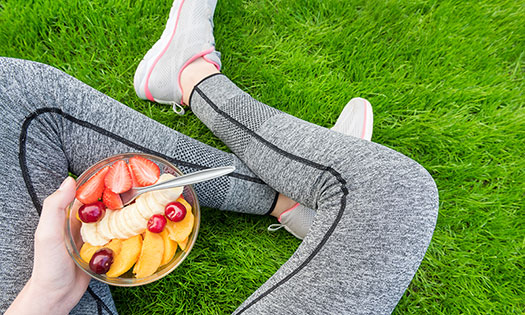
8. The Importance of Rest and Sleep
Rest and sleep are often overlooked aspects of an athlete’s nutrition regimen. During sleep, the body repairs tissues and releases growth hormones, essential for recovery and muscle building.
9. Supplements for Female Athletes
While a well-balanced diet should meet most nutritional needs, some female athletes may benefit from supplements such as iron, vitamin D, or omega-3 fatty acids. However, it’s essential to consult with a healthcare professional before taking any supplements.
How LED Foods Aid in Performance Enhancement
1. Sustained Energy Levels
LED foods release energy gradually, providing a sustained source of fuel during physical activity. Unlike high-energy-dense foods, which can lead to energy spikes and crashes, LED foods maintain a stable blood glucose level, allowing athletes to perform at their best for extended periods.
2. Improved Nutrient Intake
By incorporating LED foods into their diets, female athletes can maximize nutrient intake without excessive calories. Nutrient-dense foods support muscle repair, immune function, and overall well-being, enhancing athletic performance and reducing the risk of injuries.
3. Weight Management
Maintaining an optimal weight is crucial for female athletes, as excessive weight can hinder performance and increase the risk of injuries. LED foods help in weight management by providing satisfying meals with fewer calories, making it easier for athletes to maintain their desired weight.
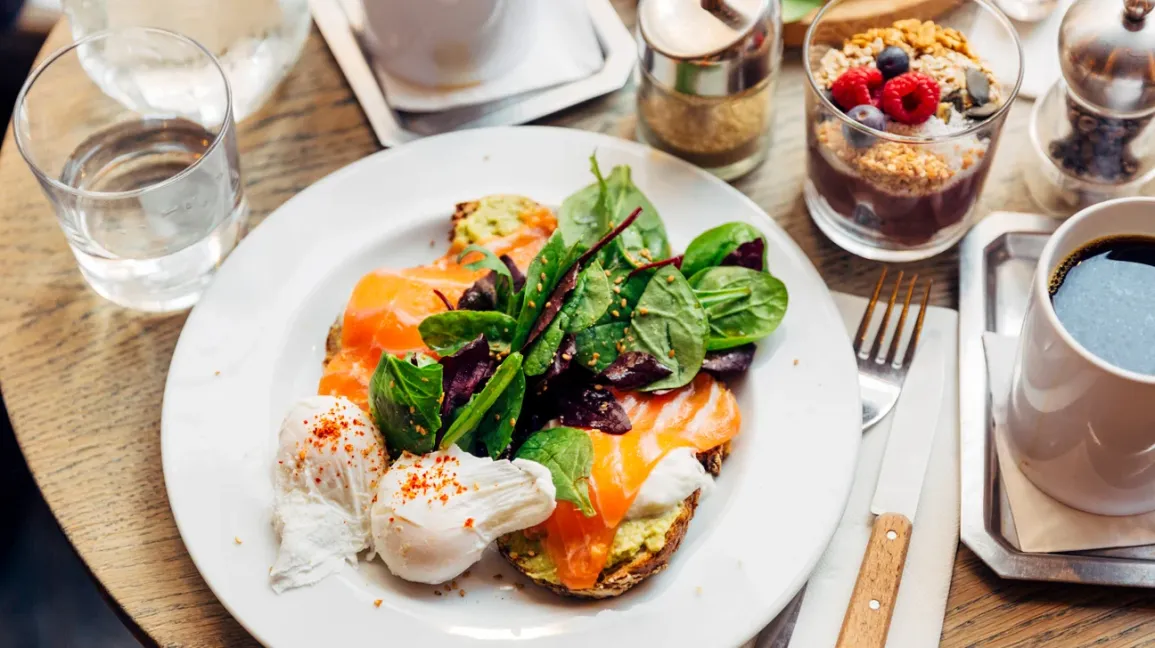
Key LED Foods for Female Athletes
1. Fruits and Vegetables
Colorful fruits and vegetables are excellent sources of vitamins, minerals, and antioxidants. They offer essential nutrients to support immune function, enhance recovery, and protect against oxidative stress caused by intense physical training.
2. Whole Grains
Whole grains like quinoa, brown rice, and oats are rich in complex carbohydrates, providing a steady release of energy during workouts. These grains are also high in fiber, aiding digestion and promoting gut health.
3. Lean Proteins
Lean proteins, such as chicken, turkey, fish, and plant-based options like tofu and legumes, support muscle repair and growth. Adequate protein intake is vital for female athletes to recover from intense training sessions.
4. Healthy Fats
Incorporating sources of healthy fats, like avocados, nuts, seeds, and olive oil, into the diet can aid in hormone regulation and reduce inflammation. These fats also contribute to overall heart health.
Meal Planning Tips for Female Athletes
1. Pre-Workout Nutrition
Before engaging in physical activity, female athletes should consume a balanced meal consisting of carbohydrates, proteins, and a small amount of healthy fats. This combination provides sustained energy and ensures proper muscle function during workouts.
2. Post-Workout Nutrition
After exercise, the body requires nutrients for recovery. A post-workout meal rich in protein and carbohydrates helps replenish glycogen stores and aids in muscle repair and growth.
3. Hydration Strategies
Proper hydration is vital for female athletes to maintain optimal performance. Drinking enough water throughout the day and during training sessions is essential for preventing dehydration.
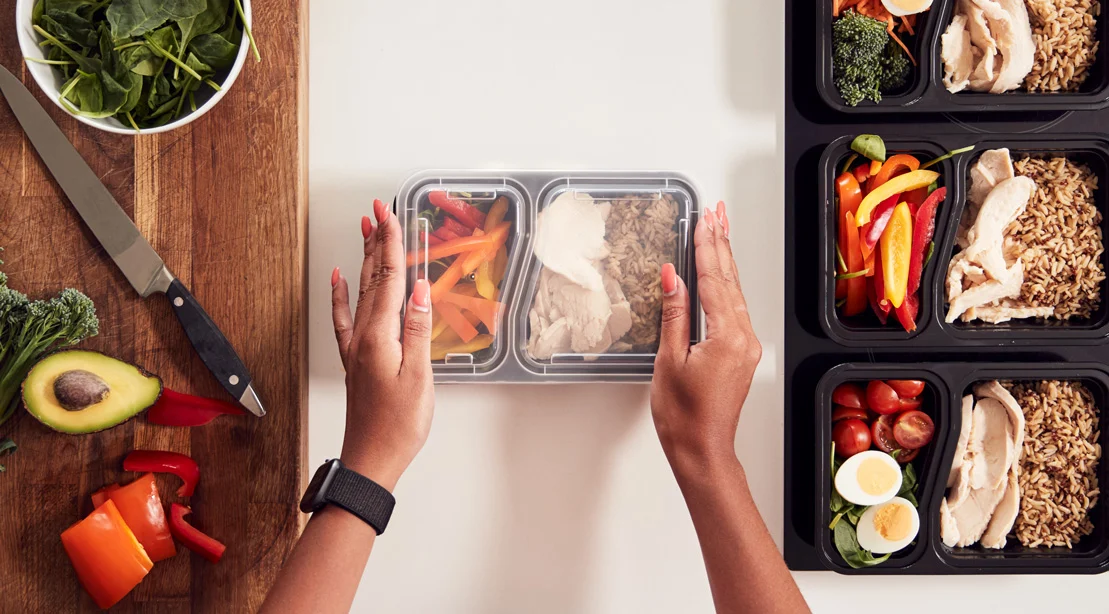
Balancing Macronutrients and Micronutrients
1. The Role of Carbohydrates
Carbohydrates serve as the primary energy source for athletes. Including a mix of complex and simple carbohydrates in the diet provides quick and sustained energy during physical activity.
2. Importance of Proteins
Proteins are the building blocks of muscle tissue and are crucial for female athletes to support recovery and repair after intense workouts.
3. Embracing Healthy Fats
Healthy fats aid in nutrient absorption, hormone production, and overall cellular health. Female athletes should include these fats in their diets in appropriate quantities.
4. Essential Micronutrients
Vitamins and minerals are essential for numerous physiological processes in the body. A varied diet of LED foods ensures a rich intake of these micronutrients.
Avoiding Common Nutritional Pitfalls
1. Processed Foods and Sugary Snacks
Foods high in added sugars and unhealthy fats should be limited in a female athlete’s diet, as they provide empty calories and lack essential nutrients.
2. Overreliance on Supplements
While supplements can be beneficial, they should not replace a balanced diet of LED foods. Relying excessively on supplements can lead to nutrient imbalances.
3. Hydration Mistakes
Neglecting proper hydration can lead to reduced performance and an increased risk of heat-related illnesses during physical activity.
The Mind-Body Connection in Performance
1. Reducing Stress and Anxiety
Stress management techniques, such as meditation, mindfulness, and adequate rest, contribute to improved athletic performance.
2. Prioritizing Sleep and Recovery
Adequate sleep is essential for muscle repair, cognitive function, and overall well-being. Female athletes should prioritize quality sleep to enhance their athletic abilities.
Inadequate energy intake affects female athletes
Inadequate energy intake can have significant consequences on female athletes’ performance, overall health, and well-being. As athletes engage in intense physical activities, their bodies require sufficient energy to meet the demands of training, recovery, and competition. When there is a shortfall in energy intake, several negative effects may arise:
1. Reduced Performance
Insufficient energy can lead to decreased stamina, strength, and endurance during training sessions and competitions. This can hamper an athlete’s ability to perform at their best, impacting their athletic achievements. Inadequate energy intake can significantly impact female athletes’ performance and overall health.
2. Increased Risk of Injury
Low energy levels can result in fatigue and impaired coordination, making female athletes more prone to injuries, including stress fractures, muscle strains, and ligament tears. Energy density, referring to the number of calories per gram of food, plays a crucial role in maintaining an optimal calorie intake for athletes.
3. Disordered Eating Patterns
In an attempt to control their weight or body composition, some female athletes may resort to disordered eating patterns, such as restrictive dieting or excessive exercise. These behaviors can lead to eating disorders like anorexia nervosa or bulimia, further exacerbating the negative impact on health.
4. Hormonal Imbalances
Inadequate energy intake can disrupt hormonal balance, leading to irregular or absent menstrual periods (amenorrhea). This condition, known as the female athlete triad, includes disordered eating, amenorrhea, and decreased bone density (osteoporosis).
5. Bone Health Compromises
Energy deficiency can weaken bones, making them more susceptible to fractures and long-term bone health issues, such as osteoporosis, which can have serious consequences later in life. Low-energy-dense foods, which have fewer calories per gram and higher volume, can help athletes feel full while consuming a lower number of calories. Nutrient-dense foods like fruits and vegetables are examples of low-energy-dense foods that provide essential nutrients without packing on excess calories.
6. Decreased Immune Function
Insufficient energy intake can compromise the immune system, making female athletes more susceptible to illnesses and infections. Choosing low-energy-dense foods for weight loss and incorporating nutrient-dense options can help athletes reach their performance goals while ensuring they get the energy they need to excel in their athletic endeavors.
7. Psychological Effects
The stress of inadequate energy intake and potential performance declines can negatively impact athletes’ mental health, leading to anxiety, depression, and decreased motivation. In contrast, high-energy-dense foods, such as high-fat foods, contain many calories per gram and can lead to overconsumption. Maintaining a healthy eating pattern with an appropriate amount of energy intake is vital for female athletes’ weight management and overall well-being.

Consulting with Sports Nutritionists
For personalized dietary recommendations, female athletes can seek guidance from qualified sports nutritionists. A professional can tailor a diet plan to meet individual needs and optimize performance. Consulting with sports nutritionists is crucial for female athletes to optimize their performance by fueling their bodies with the right foods. One essential concept they focus on is energy density, which refers to the amount of energy or calories per unit of food. By choosing foods with a higher energy density, athletes can consume more calories in a smaller volume, making them feel fuller and more satisfied.
For those looking to lose weight or manage their weight, nutritionists recommend incorporating more low-energy-dense foods into their diets. These foods, such as fruits, vegetables, and whole grains, are low in calories but high in nutrients, making them a perfect fit for a healthy diet. On the other hand, high-energy-dense processed foods, like junk foods, tend to be higher in calories and lower in nutrients, making it easier to consume a large amount of calories without feeling satisfied.
Nutritionists help athletes calculate energy density, which ultimately affects weight management and overall performance. By understanding energy density and making informed food choices, female athletes can achieve their performance goals while maintaining a balanced and nutritious diet.
Conclusion
Low-energy-dense (LED) foods offer a valuable strategy for female athletes looking to fuel their performance effectively. By incorporating nutrient-dense foods into their diets and adopting appropriate meal planning, athletes can enhance their energy levels, support recovery, and improve overall health. Balancing macronutrients and micronutrients, while avoiding common nutritional pitfalls, contributes to achieving peak performance on and off the field.
FAQs – Lower Energy Density Foods Calorie
What are LED foods?
LED foods are those that provide fewer calories per gram of weight and are rich in essential nutrients.
How do LED foods enhance athletic performance?
LED foods provide sustained energy levels, improved nutrient intake, and aid in weight management.
Which LED foods are essential for female athletes?
Fruits, vegetables, whole grains, lean proteins, and healthy fats are key LED foods for female athletes.
What should female athletes eat before workouts?
A balanced meal with carbohydrates, proteins, and healthy fats is ideal for pre-workout nutrition.
Why is hydration important for female athletes?
Proper hydration is vital for maintaining optimal performance and preventing dehydration-related issues.

